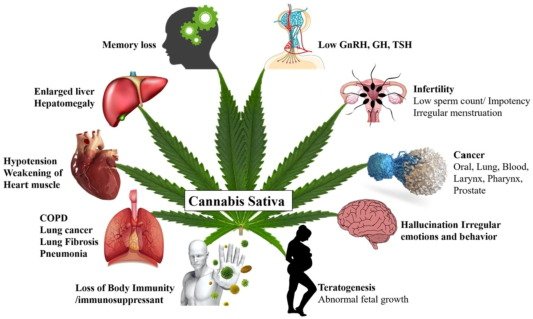
The effects of Delta 9 THC (tetrahydrocannabinol), the primary psychoactive component of cannabis, have garnered significant attention in recent years. Many users report varied experiences, with some noting elevated moods and feelings of euphoria, while others may experience anxiety or paranoia. Understanding how Delta 9 THC influences mood and emotion requires examining the intricate interplay between the compound, the brain, and individual psychological states. We will explore the biochemical mechanisms by which Delta 9 THC interacts with the endocannabinoid system, the psychological outcomes of its use, and its potential implications for mental health.
The Biochemical Mechanisms of Delta 9 THC
Delta 9 THC primarily exerts its effects by binding to the cannabinoid receptors in the brain, specifically the CB1 receptor. This receptor is part of the endocannabinoid system, a complex network that regulates various physiological processes, including mood, emotion, pain perception, and memory. When Delta 9 THC binds to the CB1 receptors, it initiates a cascade of neurochemical reactions that can lead to alterations in mood and emotional states. For instance, activating these receptors can enhance the release of neurotransmitters like dopamine and serotonin, which are known to play significant roles in regulating mood. Increased levels of these neurotransmitters can contribute to feelings of happiness, relaxation, and euphoria. However, the effect is not universally positive; individual differences in neurobiology can lead to varying responses. For some users, overstimulation of the CB1 receptors may result in feelings of anxiety, paranoia, or an overwhelming high, highlighting the complexity of Delta 9 THC’s influence on emotional well-being.
Moreover, the dosage of Delta 9 THC significantly impacts its mood-altering effects. Lower doses may produce stimulating effects, promoting sociability and creativity, while higher doses induce sedation and introspection. This phenomenon underscores the importance of understanding one’s psychological makeup and experiences when using cannabis. The variability in response if you get your delta 9 THC suggests that individuals may require different approaches to find a balance that supports positive emotional experiences without inducing negative feelings. Therefore, understanding the underlying biochemical mechanisms can aid users in making informed choices about dosage and use.
The Emotional Spectrum of Delta 9 THC Use
The emotional responses to Delta 9 THC can be diverse, often described as a spectrum that ranges from euphoria to anxiety. Many users report experiencing enhanced emotional connectivity, finding themselves more in tune with their feelings and those around them. This heightened emotional awareness can lead to profound joy, creativity, and appreciation for art, music, and nature. Such experiences often contribute to the therapeutic appeal of cannabis, making it a popular choice for enhancing leisure activities and social gatherings.
On the other hand, the same compound can provoke anxiety and discomfort in certain individuals, particularly those with pre-existing mental health conditions or those unaccustomed to its effects. Anxiety can manifest in various ways, such as racing thoughts, paranoia, or an overwhelming sense of unease. Understanding that individual experiences with Delta 9 THC are shaped by various factors—such as personality traits, previous experiences with cannabis, and the social context of use—is essential for grasping its impact on mood and emotion. Users often report that setting, environment, and the presence of supportive individuals can significantly influence their emotional state while using Delta 9 THC.
Additionally, the overall mental health of an individual plays a crucial role in determining the emotional response to Delta 9 THC. For example, those experiencing depression or chronic stress may find relief and mood enhancement through its use, while others may find it exacerbates their symptoms. This variability highlights the importance of personalizing cannabis use according to individual needs and experiences.
Therapeutic Implications of Delta 9 THC on Mental Health
Given its influence on mood and emotion, Delta 9 THC has found its way into discussions surrounding mental health treatment. Some studies indicate that it may provide relief for individuals dealing with anxiety, depression, and post-traumatic stress disorder (PTSD). Users often report that Delta 9 THC can help reduce anxiety and enhance mood, providing a sense of calmness and relaxation. The potential therapeutic benefits of Delta 9 THC stem from its ability to modulate the endocannabinoid system, which is intricately linked to stress responses and emotional regulation.
For example, in the context of PTSD, some individuals find that Delta 9 THC can help alleviate intrusive memories and flashbacks, allowing for a more peaceful state of mind. It may also serve as a coping mechanism for those experiencing emotional distress, helping to ground them in the present moment. However, while many report positive outcomes, it is vital to approach the use of Delta 9 THC with caution, as it is not universally effective and may not be suitable for everyone.
Research on cannabis and mental health is ongoing, and the findings are often nuanced. It is crucial for individuals considering Delta 9 THC for mental health reasons to consult healthcare providers. They can offer guidance based on individual health profiles and potential interactions with other treatments. Additionally, there is a growing need for more comprehensive research to understand the long-term effects of Delta 9 THC use on mental health, as well as the mechanisms behind its emotional impact.
Delta 9 THC has a multifaceted impact on mood and emotion, influenced by biochemical mechanisms, individual factors, and environmental contexts. Its ability to activate cannabinoid receptors in the brain can lead to positive emotional experiences, enhanced creativity, and a sense of well-being for many users. However, this influence is not universal; some individuals may experience anxiety or discomfort. The therapeutic implications of Delta 9 THC, especially in the context of mental health, show promise but also necessitate careful consideration of individual differences and mental health histories. As research continues to unfold, a deeper understanding of Delta 9 THC’s role in shaping emotional experiences will empower individuals to navigate its effects thoughtfully, maximizing benefits while minimizing potential downsides.


